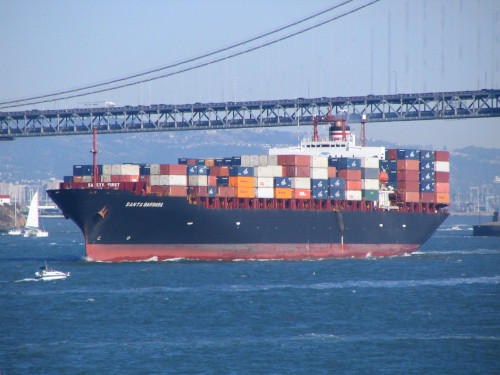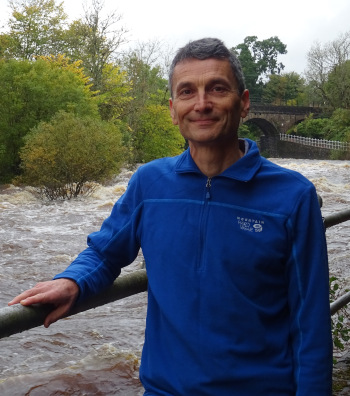
By Neil Kitching
A short question that is not easy to answer. Here I discuss if, and how, we can reduce the amount of ‘stuff’ we buy and consume and argue that we should campaign to promote a better quality of life.
It is relatively easy to calculate your direct carbon footprint from heating your home, the electricity you use and from your travel. However, in wealthier countries around half of our carbon footprint arises from what we buy and consume – food, clothing, furniture, electrical goods, cars and construction and maintenance of your house. With the exception of food (a blog for another day) much of this stuff is made from steel, concrete and plastics.
This all has a huge environmental impact, ranging from mining (often overseas), processing, manufacturing and transport logistics. In fact, I argue in my book, Carbon Choices, that it is the ‘over’ consumption by wealthy people that is driving our climate and other environmental crises.
This is difficult to define, and I guess it varies depending on your own position. It is easy to define overconsumption as extravagant displays of wealth by people richer than you (private jets for example)! But from the perspective of the Planet, over consumption is when all the people in the world use up more resources than we can sustainably grow or source from raw materials. We are well beyond that definition, with WWF calculating that we use one and a half planet’s worth of resources already (as a result our natural world is deteriorating globally). UK citizens use around three planets worth of resources – much of it imported.
Many environmentalists, but fewer economists, argue for ‘degrowth’. But they usually fail to paint a clear or compelling picture of what this would mean in practice. Consume less, consume locally, move away from a focus on GDP and hopefully enjoy a better quality of life. There are many examples of communes and more sustainable communities, but I fail to see how this could scale up to every person on the planet. I suspect such a society would not be very innovative or adaptive and in this globally competitive world would eventually lose out.
Politicians like eye catching, simple and positive slogans. Vote for ‘change’, vote for ‘growth’, vote for a ‘better future’. I really can’t see the public voting in a government elected on a platform of degrowth. It is not going to happen. A minority of people might vote for it, but the majority never will.
Whilst we may only need to buy a handful of new clothes per year, and many of us don’t need a larger house, I doubt that politicians are going to legislate along these lines!
A middle ground has been proposed – the circular economy. Here, all goods are manufactured to be durable and repairable. At the end of their useful life, they can be remanufactured into other goods or recycled in a continuous loop so that few virgin raw materials are required. This is an extremely resource efficient economy and is definitely something to work towards.
Some actions to promote a circular economy are common-sense. For example, the plastic bag charge reduced our consumption of single use carrier bags by 90%. Governments can ban wasteful consumption (plastic straws, single-use barbecues), encourage better eco-design, mandate energy efficiency standards on appliances and force manufacturers to recycle or to use recycled materials. Lots can be done but it requires detailed and well thought through legislation. A proposal I have made before is to require long life guarantees on electronic products, say 10 years for washing machines. Manufacturers and retailers would then sell high-quality, long-lasting goods that are repairable – a better outcome for us all.
Is this enough? No-one knows. Although there are many good examples on the Ellen MacArthur Foundation’s website none of this has been scaled up to an economy wide level. And our global consumption keeps on growing. There will always be some leakage and wastage but perhaps we could become ultra-resource efficient and reduce our consumption of virgin raw materials below the one Planet boundary talked about by WWF. I am not sure.
For once I don’t have a clear conclusion. Yes, we should reduce our wasteful consumption, but how? Readers will have their own views and preferences. Personally, I practice a bit of ‘frugal’ consumption and I try to avoid waste wherever I can. Governments should legislate to encourage a circular economy. Environmentalists who advocate consuming less (in various ways) should be aware that you might get very frustrated in your efforts. Ever feel you are banging your head against a brick wall?
I think we would be better campaigning to promote an optimistic and better quality of life – and align this message with consuming less. For example,
So, rather than campaign on simple messages of fly less, don’t buy a car, eat vegan, ban this, buy less stuff – that might appeal to a minority of people (and not to politicians); try turning these into positive campaigns that will appeal to the majority – improve our society, communities and our quality of life.
